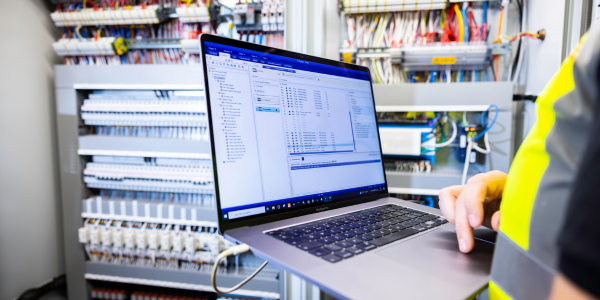As the climate crisis gathers pace, all over the world businesses are looking to ways to become more sustainable.
Sustainability within business means committing to practices that will not negatively impact the environment, communities or society as a whole. In many cases, business sustainability goals are also created to see where a positive impact can be made in these areas instead.
In addition to benefiting society and the environment, reasons to introduce sustainable practices within a business can include:
- enhancing the company’s reputation and/or brand image
- meeting customer expectations
- facilitating business growth and
- improving staff satisfaction, health and comfort
Sustainable practices can vary, depending on the type of business. For example, in manufacturing, a business may look to use materials, suppliers and processes which are more environmentally friendly. Meanwhile, a business which is office-based may implement recycling initiatives or use renewable energy sources.
One way in which businesses can improve their sustainability is by making changes to the building management system (BMS). Such changes can have a positive impact both on the environment and anyone who uses the building.
Meeting Business Sustainability Goals
Buildings and the construction sector combined are responsible for almost one-third of total global final energy consumption and nearly 15% of direct CO2 emissions. Both need to be addressed in order to achieve Net Zero by 2050, the international target of getting as close to zero carbon emissions as possible.
As it stands, many buildings aren’t on track to meet this target, but the implementation of sustainability goals, which include changes to building management systems, could turn this around.
By making it one of your business sustainability goals to assess your business’ energy use and upgrade to an efficient building management system, your building will be able to:
- Adapt to seasonal change
- Only use energy when and where it is required through the use of IoT smart sensors
- Reduce CO2 emissions by adapting quickly to changes which are difficult to predict
- Adapt and evolve with the changing needs of the business
- Monitor where energy efficient changes can be made
- Enhance building occupant comfort through improved air quality, comfortable temperatures and appropriate lighting
- Be maintained more easily with less manpower required
- Manage and control all of the building’s Occupant Technology (OT)
As well as reducing energy consumption and CO2 emissions, which also present cost savings, a commitment to sustainability will make a business more attractive to potential employees, helping it to ensure it has the very best workforce possible.
Ask one of our building management system specialists about how making positive changes to your building management system could be an excellent way to meet your business sustainability goals. We look forward to hearing from you.
Cube Controls is an established and experienced supplier of Building Management Systems, specialising in the design and set up of bespoke environmental and energy control programmes for commercial buildings and property.
To find out how Cube Controls can support you at all stages of design and consultancy, installation and modification and maintenance of your building management systems contact our expert and friendly team on 01903 694279 or sales@cubecontrols.co.uk.




